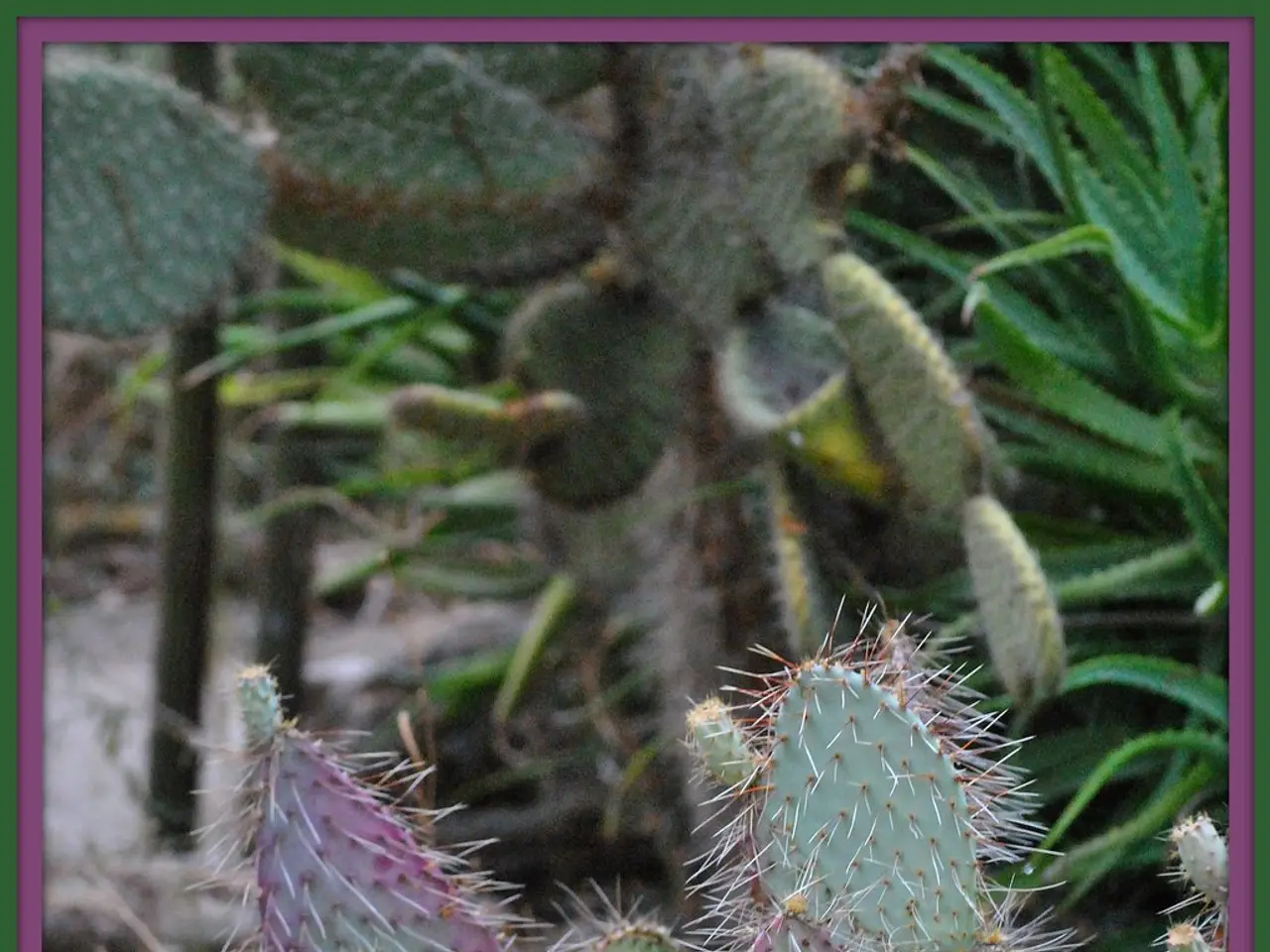customs confiscated cacti and now they're housed in the Botanical Garden
In a bid to combat the growing issue of illegal plant trade, authorities are enlisting the help of botanical gardens to raise awareness and limit the illegal trade of rare and endangered plant species. This initiative comes as South Africa grapples with a surge in the trafficking of succulents collected from the wild since 2019.
Jeremy Bélanger, a buyer at Serres Lavoie, a Laval nursery specializing in the sale of cacti and succulents, highlights the complexity of the regulations surrounding import procedures for exotic plants. This complexity may lead some individuals to unknowingly breach these rules when bringing plants from abroad.
Recently, a shipment of 57 illegally imported plants, including cacti, succulents, and orchids, was seized by Canadian customs. Among these, 27 cacti and 30 bare-root succulents were identified, as well as a shipment of 17 orchids from China. The Montreal Botanical Garden was entrusted with temporarily housing these plants for approximately three months.
The Montreal Botanical Garden was also responsible for identifying and housing some of the plants, with 42 plants being kept for its collections. The rest will not be returned to the offending importer.
Some of the plants are endangered species with strict trade and importation regulations. About 30 specimens were of species with stricter import restrictions, including 6 endangered species listed in Annex I of CITES. These plants are questionably sourced, with some being ripped from their natural habitats, as explained by Bélanger.
The attraction for rare plants in Quebec has increased since the COVID-19 pandemic, acknowledges Bélanger. However, the penalties for illegally importing endangered plant species in Canada can be substantial. Fines depend on the exact violation, but unlawful possession or importation of endangered wildlife or plant parts generally entails significant financial penalties.
Canada implements preventive measures to curb illegal importation of endangered plant species through compliance with international agreements like the Convention on International Trade in Endangered Species of Wild Fauna and Flora (CITES). Importing products made from endangered species requires permits or certificates confirming legality and adherence to conservation protocols.
Moreover, Canadian authorities enforce regulations through inspections and controls at ports of entry to verify that imported plants or plant products meet legal standards. This includes requiring sanitation measures such as heat treatment or fumigation to prevent the introduction of invasive species or illegally sourced wood and plants.
Key measures to prevent illegal importation broadly include:
- Requiring permits under CITES for endangered species imports. - Inspection and treatment of plant products at borders. - Coordination with international and national environmental agencies to monitor and enforce compliance. - Legal frameworks with defined penalties to deter violations.
Beyond penalties, the issue of plant poaching, particularly for cacti in South America, is a significant concern, Bélanger mentions. The introduction of exotic pests poses a risk to the country's flora, Bélanger notes.
Individuals found guilty of illegally importing plants listed in Annex I of CITES may face fines ranging from $5,000 to $1 million, up to 5 years in prison, or up to $2 million in fines for recidivism. For legal entities, fines range from $25,000 to $12 million. These penalties serve as a deterrent to would-be offenders and emphasize the importance of adhering to the regulations surrounding the importation of rare and endangered plant species.
- As a response to the surge in illegal plant trade, particularly succulents, the government has collaborated with organizations like botanical gardens to implement science-based initiatives aimed at raising awareness, limiting illegal trade, and protecting endangered plant species in the health-and-wellness, environmental-science, and fitness-and-exercise sectors.
- The penalties for violating import regulations of rare and endangered plant species can be severe, with fines ranging from $5,000 to $1 million, up to 5 years in prison, or up to $2 million in fines for recidivism, highlighting the need for government oversight in the science and fitness-and-exercise sectors, ensuring compliance with international agreements like CITES.




